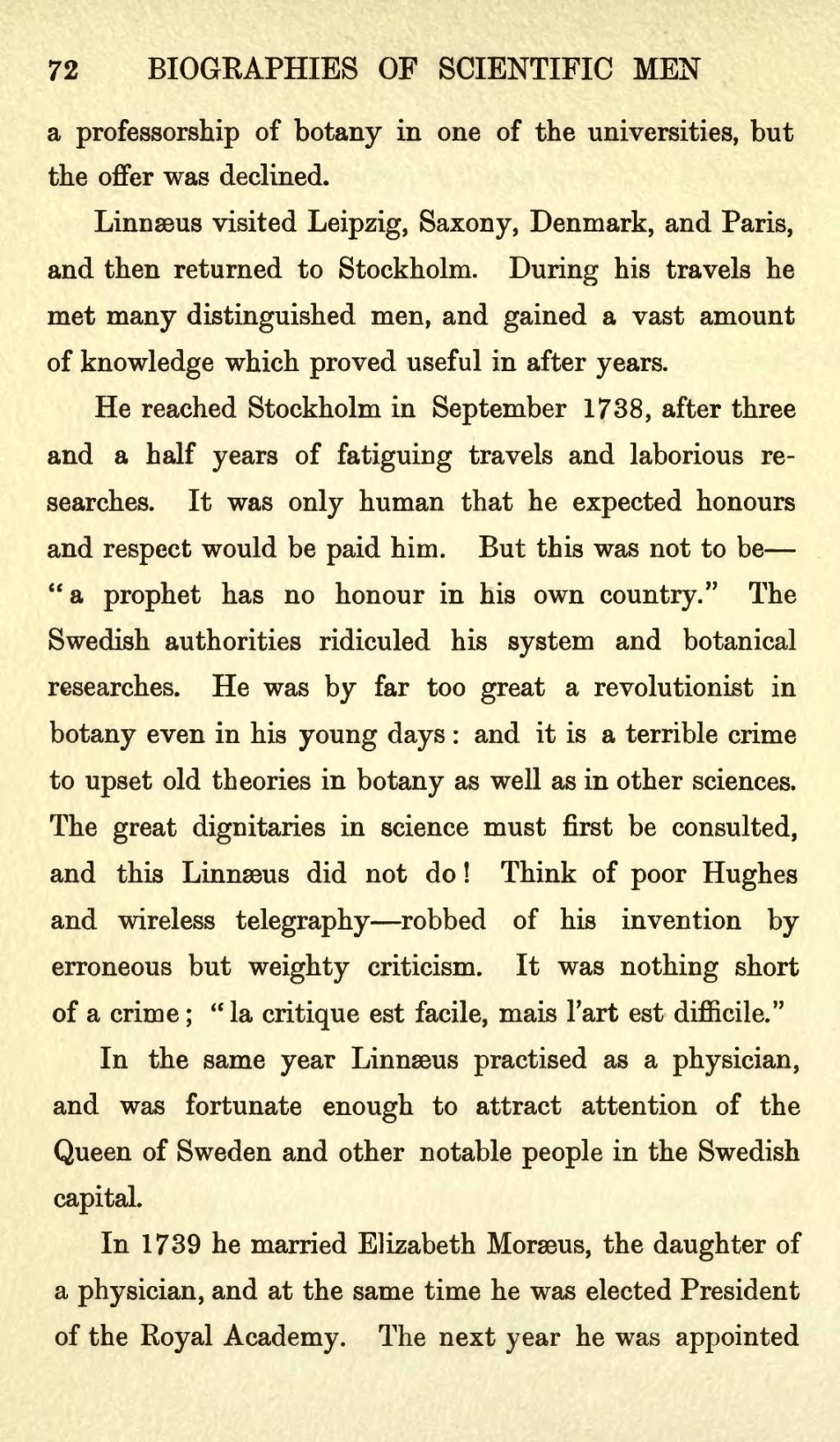a professorship of botany in one of the universities, but the offer was declined.
Linnæus visited Leipzig, Saxony, Denmark, and Paris, and then returned to Stockholm. During his travels he met many distinguished men, and gained a vast amount of knowledge which proved useful in after years.
He reached Stockholm in September 1738, after three and a half years of fatiguing travels and laborious researches. It was only human that he expected honours and respect would be paid him. But this was not to be—"a prophet has no honour in his own country." The Swedish authorities ridiculed his system and botanical researches. He was by far too great a revolutionist in botany even in his young days: and it is a terrible crime to upset old theories in botany as well as in other sciences. The great dignitaries in science must first be consulted, and this Linnæus did not do! Think of poor Hughes and wireless telegraphy—robbed of his invention by erroneous but weighty criticism. It was nothing short of a crime; "la critique est facile, mais l'art est difficile."
In the same year Linnæus practised as a physician, and was fortunate enough to attract attention of the Queen of Sweden and other notable people in the Swedish capital.
In 1739 he married Elizabeth Moræus, the daughter of a physician, and at the same time he was elected President of the Royal Academy. The next year he was appointed
